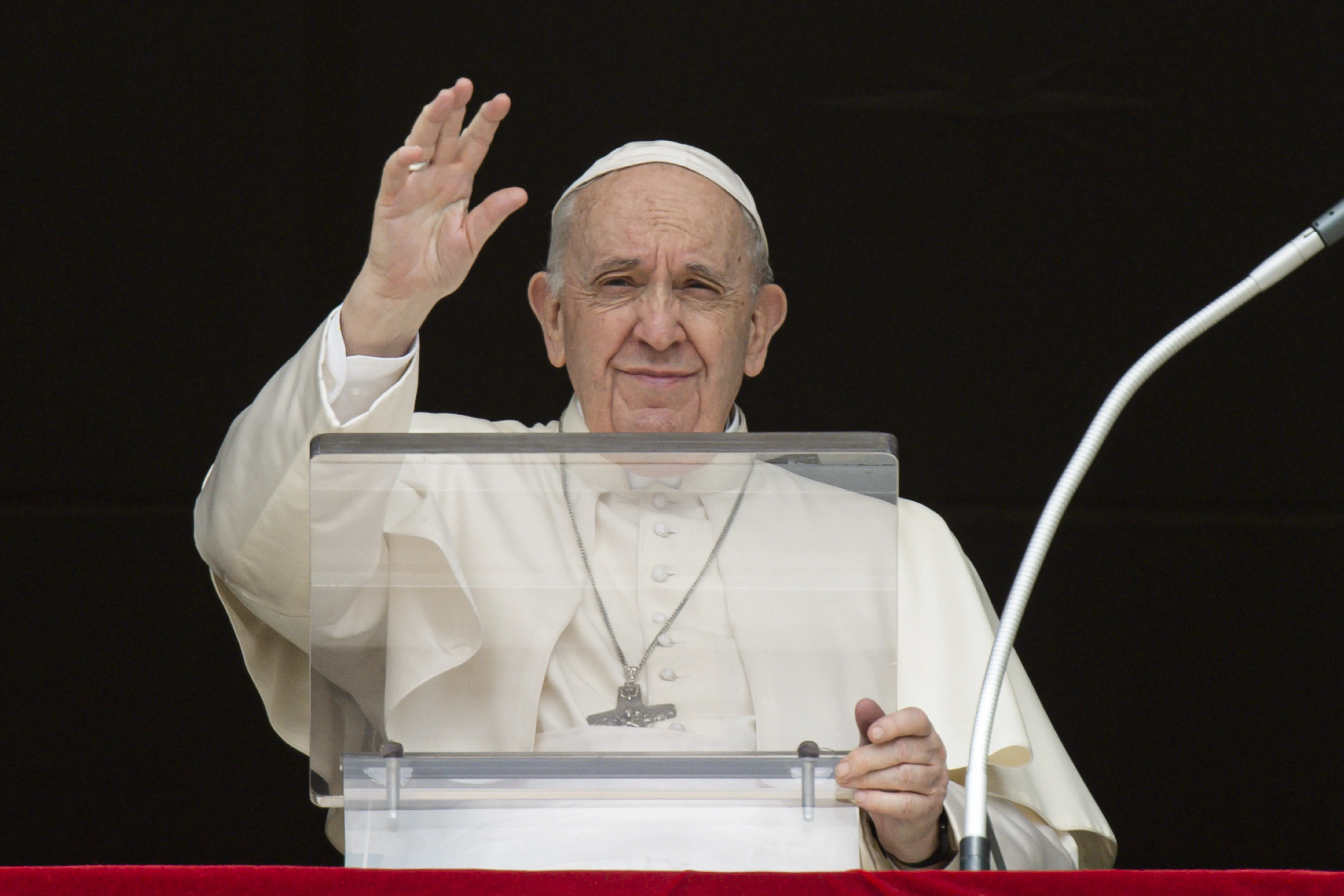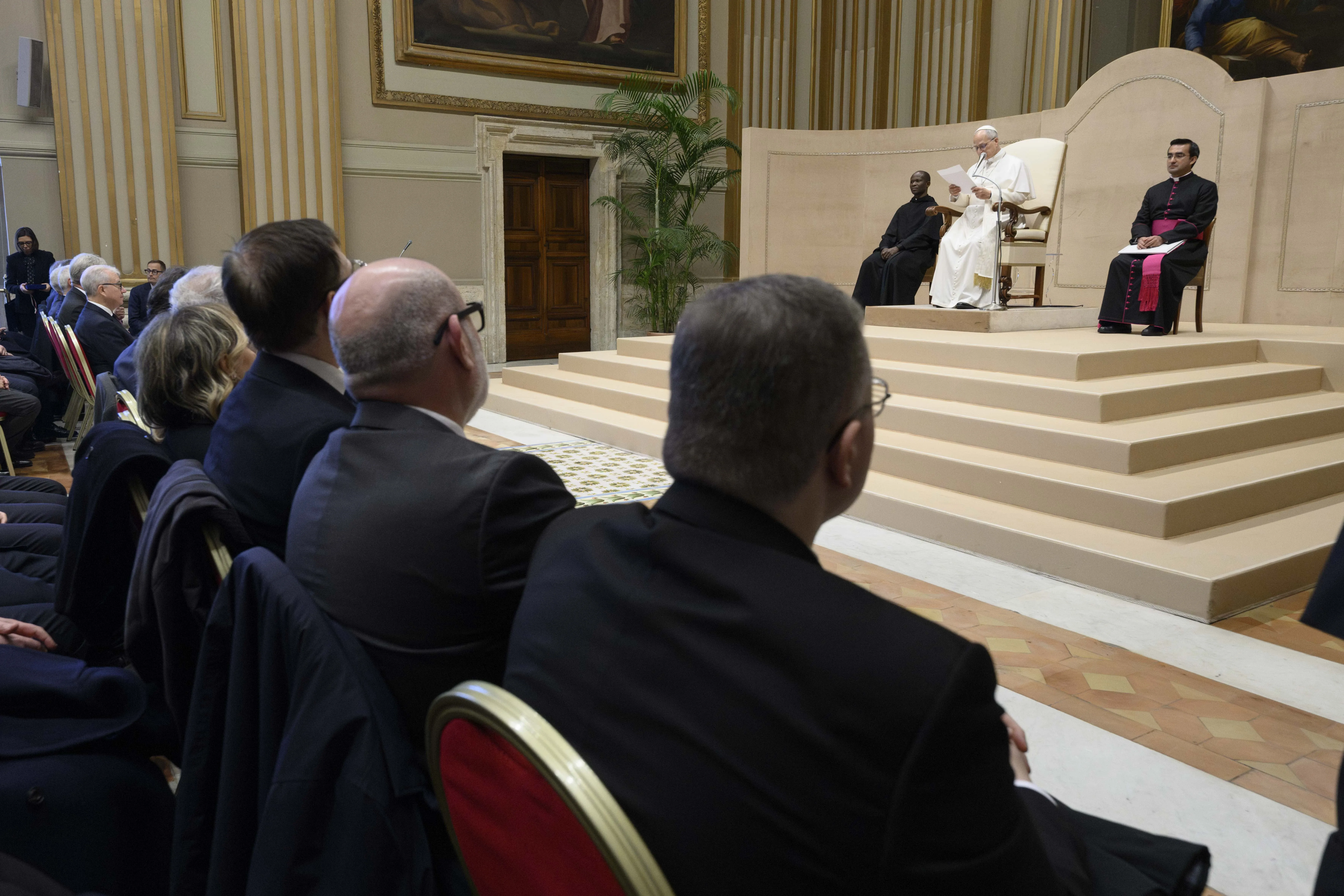Despite the older brother’s concern that his wayward sibling did many bad things, the Pope said, a “warm welcome” is still imperative. He encouraged Christians to reflect on their own habits and to ask themselves: “Do we do this? Do we look for those who are far away? Do we want to celebrate with them?”
“How much good an open heart, true listening, a transparent smile can do; to celebrate, not to make them feel uncomfortable!”
While the father of the prodigal son could have simply forgiven his wayward child by giving him a place in his home and putting him to work, the father’s reaction in Jesus’ parable teaches us about God’s response.
“God does not know how to forgive without celebrating! And the Father celebrates because of the joy he has because his son has returned,” the pope said. He added that, like the father in the parable, we need to rejoice.
“When someone whose heart is synchronized with God’s sees the repentance of a person, they rejoice, no matter how serious their mistakes may have been,” he continued. “Do not stay focused on errors, do not point fingers at what they have done wrong, but rejoice over the good because another person’s good is mine as well! And we, do we know how to rejoice for others?”
(Story continues below)
Pope Francis recounted a theatrical depiction of the prodigal son story, in which the wayward son wrote to his father telling him of his repentance. He asked his father that if he wants to welcome him, to put a white handkerchief in his home’s window. When the son turned the final corner on his trip home, he discovered that his father had tied white handkerchiefs all over the front of the house.
“The Father welcomes like this, totally, joyfully. This is our Father!” said the pope. He closed his remarks before the Angelus with a prayer: “May the Virgin Mary teach us how to receive God’s mercy so that it might become the light by which we see our neighbors.”
In remarks after the Angelus, Pope Francis again spoke of the Russian invasion of Ukraine. He said more than a month had passed since “the beginning of this cruel and senseless war.”
“We need to reject war, a place of death where fathers and mothers bury their children, where men kill their brothers and sisters without even having seen them, where the powerful decide and the poor die,” he said.
He especially lamented war’s effects on children, saying “war does not devastate the present only, but the future of a society as well.”
Pope Francis again appealed for an end to war and for a serious move towards peace. He stressed the dangers of seeing war as inevitable, adding: “Before the danger of self-destruction, may humanity understand that the moment has come to abolish war, to erase it from human history before it erases human history.”
The pope again encouraged prayers for the intercession of the Virgin Mary, Queen of Peace, to whom he had consecrated humanity and especially Russia and Ukraine on March 25. That prayer of consecration was joined by scores of bishops, priests and lay faithful from around the world. Pope Francis thanked everyone for “such a huge and intense participation.”
Pope Francis greeted various visitors and pilgrims from Rome and from afar, including the athletes of the Rome Marathon. The pope noted that Vatican Athletes has an initiative involving a number of athletes in a solidarity initiative with those in need in Rome.
“Congratulations to you!” he said.
Pope Francis added that two years ago, he had led prayers in St. Peter’s Square for an end to the pandemic, as he is now praying for an end to the war in Ukraine. He announced that visitors to the square today would receive a free book as a gift. The book was produced by the Vatican Covid-19 Commission with the Dicastery for Communication.
“It is an invitation to pray without fear during moments of difficulty, always having faith in the Lord,” said the pope. He asked everyone to remember to pray for him.
Kevin J. Jones is a senior staff writer with Catholic News Agency. He was a recipient of a 2014 Catholic Relief Services' Egan Journalism Fellowship.








